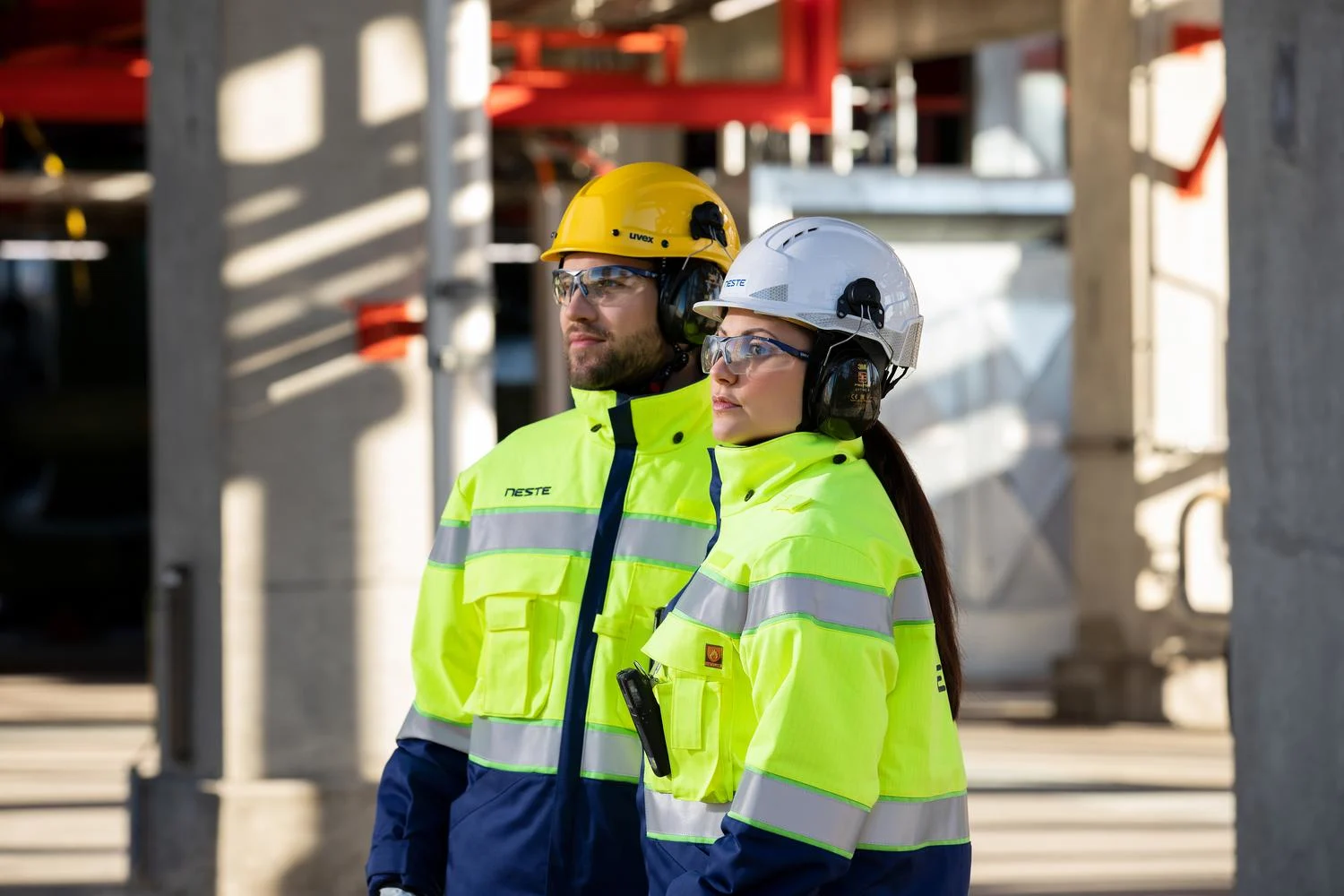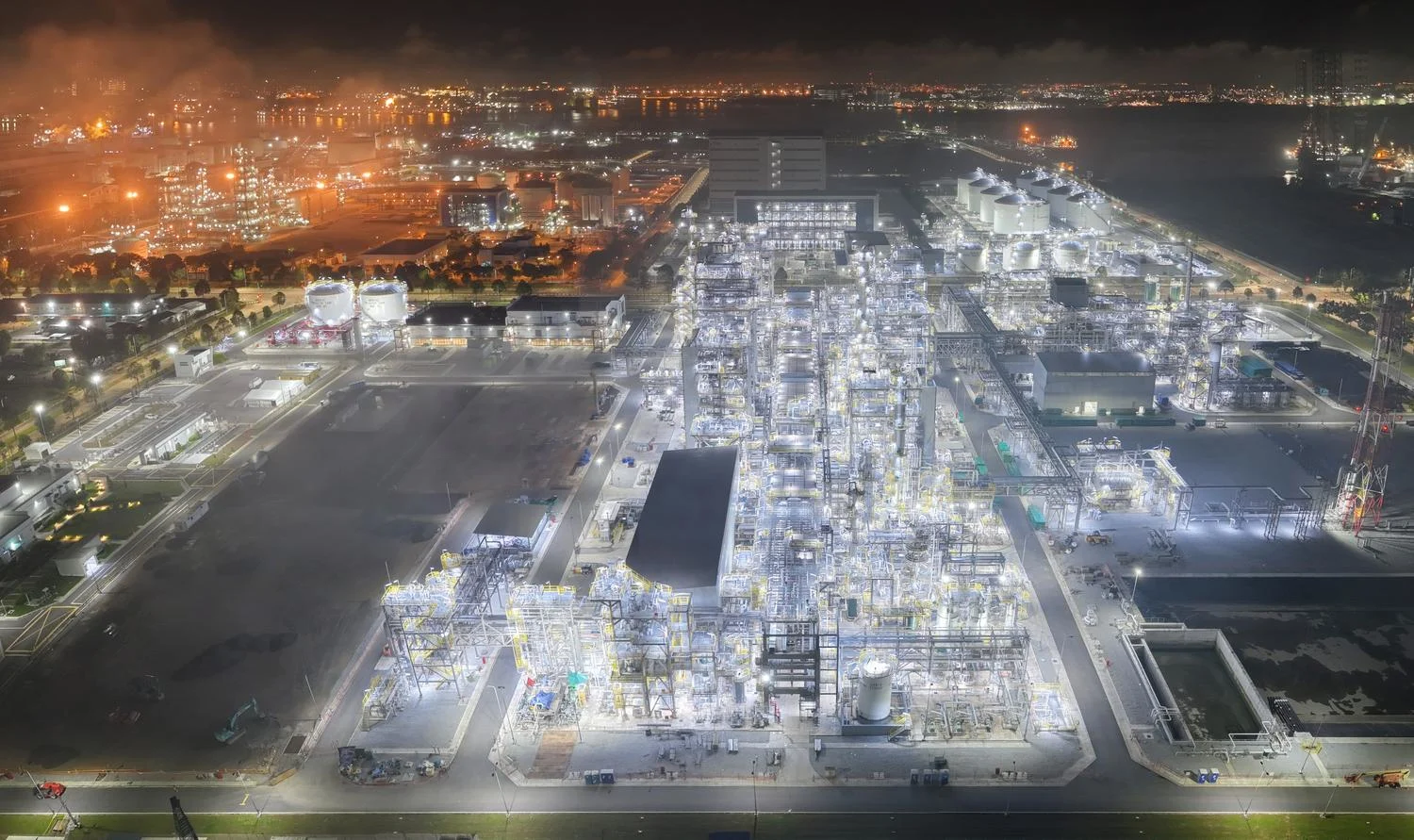Production in three countries

Neste is the world’s leading producer of sustainable aviation fuel (SAF) and renewable diesel.
We produce high-quality renewable fuels at our refineries in Porvoo, Finland, Rotterdam, the Netherlands and Singapore as well as through our joint operation with Marathon Petroleum in Martinez, California, entirely from renewable raw materials with an annual nameplate capacity of approximately 5.5 million tons. Our diverse crude oil based products are refined in Porvoo. In addition, our plant in Sluiskil, the Netherlands, is specialized in pre-treatment of renewable raw materials for our renewable products refineries.
Certified operations driving systematic environmental development
Neste's renewable product refineries Rotterdam, Singapore and Porvoo are International Sustainability & Carbon Certification (ISCC) certified or approved by the U.S. Environmental Protection Agency (EPA).
In addition, the Porvoo, Rotterdam and Singapore refineries have the independently audited ISO 14001 environmental , ISO 9001 quality and ISO 45001 occupational health and safety certifications. The certifications confirm the systematic development and compliance of Neste’s environmental, quality, health and safety management, processes and practices with international standards.

Porvoo refinery
Neste’s plan is to gradually transform the Porvoo refinery into a renewables and circular solutions refining hub.

Rotterdam refinery
Since 2011, Neste has produced renewable products at the Rotterdam refinery in the Netherlands.

Singapore refinery
Neste’s Singapore refinery that produces renewable products, started its operations in 2010.
Martinez Renewables, a joint operation with US-based Marathon Petroleum, produces renewable diesel in Martinez, California. Martinez Renewables refinery, 50% of which is owned by Neste, started operations in 2023.

Energy efficiency
We aim to reach carbon neutral production by 2035.
Among several other actions, this requires efficient and reliable monitoring to ensure that we use all resources, like energy and water, as efficiently as possible. Energy efficiency plays a key role particularly in our production and logistics. We for example, consider energy efficiency when overhauling and replacing equipment and making new investments.
We continuously seek new ways to improve energy efficiency by modifying our operating methods. As part of our commitment to reach carbon neutrality in production by 2035, we aim for 100% renewable electricity use globally. In 2024, the share of grid-connected renewable electricity was 86.2%.
Commitment to energy efficiency
Our aim is to use energy, as well as other utilities, as efficiently as possible. Energy efficiency plays a key role especially in our production and logistics.
In Finland, we have made a commitment to the efficiency program for Finland’s energy-intensive industries. During the agreement period in 2017–2025, we aim to save 500 GWh from the 2014 level. In 2024, our energy saving measures were 43.8 GWh.
We are continuously developing ways to use materials more effectively and finding solutions to minimize and recover the amount of generated waste.
Resource efficiency and circular economy
The world currently consumes more natural resources than the Earth can produce. Therefore, it is our responsibility to make more from less.
We are continuously seeking ways to increase the material efficiency of our operations. Our refineries operate efficiently and only a very small fraction of the raw materials we use end up as waste.
Someone's waste, our raw material – renewable fuels from waste
We do not utilize energy from waste through incineration. With Neste’s proprietary NEXBTL™ technology, we refine renewable products, such as Neste MY Renewable Diesel™ and Neste MY Sustainable Aviation Fuel™, from a wide variety of renewable raw materials, including used cooking oil, animal fat from food industry waste and vegetable oil processing waste and residues. Renewable fuels can replace the use of fossil fuels and significantly reduce greenhouse gas emissions.
Waste and residues account for approximately 90% of our renewable raw material usage annually. We have the capability of producing renewable diesel and sustainable aviation fuel from 100% waste and residue raw materials.
Material efficiency in conventional oil refining
Oil refining is highly efficient in terms of material consumption, as a large part of the raw materials used can be recovered. Crude oil can be utilized in many ways, and only a small fraction ends up as waste. If a final product does not meet the quality requirements, it can be returned to the refining process.
Circulating materials in industrial symbioses
We aim to save materials and protect the environment. All of our refineries are located in industrial areas, which offers opportunities for leveraging synergies with neighboring plants. For example, at our Porvoo refinery we recover sulfur from raw materials for oil refining. The sulfur is processed into elemental sulfur, which is used as a product as such. In addition, the Porvoo refinery generates annually around 10,000 tons of used wash lye, which is used by the pulp industry.
The Singapore and Rotterdam refineries are able to make use of side streams and process waste from nearby companies in their own production processes.
CO2 recovery plant
The CO2 recovery plant in Singapore was taken in use in 2016. CO2 recovery increases the resource efficiency of the refinery, and reduces the carbon footprint of renewable products over their life cycle.The refining process of crude oil based products at our Porvoo refinery also generates CO2, some of which is recovered and sold to the local gas company.

Releases and news
Here you will find our latest press and stock exchange releases, and news.
Share this